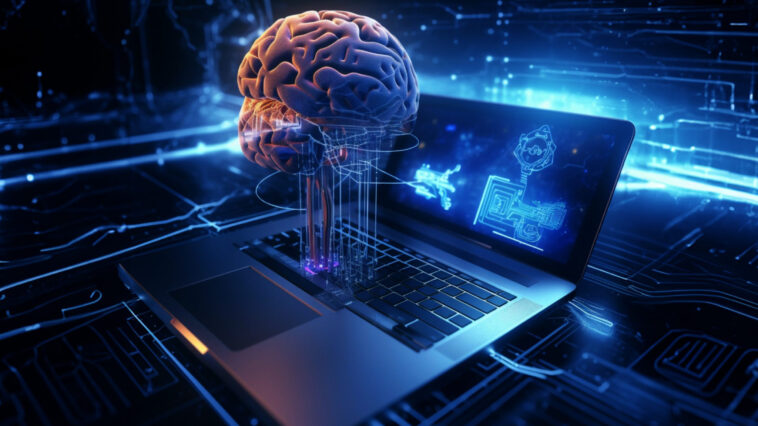Introduction: The Rise of Machine Learning
In the last decade, machine learning has become a buzzword in almost every industry. From healthcare to finance, companies are using this technology to analyze massive datasets, predict trends, and automate processes. The possibilities seem endless. But with great power comes great responsibility, right? As machine learning systems continue to evolve, so do the ethical questions surrounding their use.
What is Machine Learning?
Before diving into the ethical concerns, let’s briefly explain machine learning. Simply put, it’s a type of artificial intelligence (AI) that enables computers to learn from data without being explicitly programmed. The more data a system processes, the better it becomes at predicting outcomes or recognizing patterns. Think of it like teaching a child how to ride a bike: after a few falls, they adjust and get better. Similarly, a machine learning model improves over time as it processes more information.
Why Ethical Considerations Matter
But why should we care about ethics when it comes to machine learning? At first glance, ML seems like a neutral technology—it’s just a tool that can be used for good or bad, depending on how it’s applied. However, the ethical implications of how we build and use these systems can affect everything from individual privacy to public safety. These aren’t just tech issues—they’re human issues. So, it’s critical to ensure that machine learning operates within ethical boundaries that respect the rights and dignity of all people.
Bias in Machine Learning
One of the biggest ethical challenges in machine learning is bias. Machine learning systems learn from historical data, and unfortunately, that data can carry the biases of the society that created it. For example, an ML algorithm used to screen job candidates might favor certain groups over others, perpetuating gender or racial biases. Imagine a world where your job prospects depend on a machine that has already decided who’s more likely to succeed based on outdated or biased data.
How does this happen? The answer lies in the data. If the data used to train an ML model is biased, the system will learn and replicate that bias. Even more troubling, sometimes these biases are invisible until real harm is done. This makes addressing bias in machine learning both urgent and complicated.
The Black Box Problem: Lack of Transparency
Another significant concern is the black box problem. Machine learning systems, especially deep learning models, can be incredibly complex. While they may provide accurate results, the decision-making process is often opaque—even to the people who created the system. It’s like trying to figure out how a magician performs a trick without being able to look behind the curtain.
Why is this an issue? Lack of transparency makes it difficult to hold these systems accountable. If a machine learning algorithm denies someone a loan or makes an incorrect medical diagnosis, how do we determine what went wrong if we don’t fully understand the decision-making process? This lack of transparency can erode trust in the technology.
Privacy Concerns and Data Security
Machine learning systems rely heavily on data—tons of it. To improve their performance, they need access to sensitive information, such as financial records, medical histories, or even personal preferences. This raises important privacy concerns. When your data is used to train machine learning models, who controls it? Is your information safe?
Data breaches can have devastating effects, from identity theft to personal invasions of privacy. Moreover, the widespread use of machine learning in surveillance systems has led to growing concerns about the erosion of civil liberties. People’s movements and behaviors are being tracked, sometimes without their consent. As machine learning becomes more embedded in everyday life, we need to carefully consider how it impacts our privacy and security.
Accountability: Who is Responsible?
When a machine learning system makes a mistake—whether it’s in diagnosing a patient, approving a loan, or even guiding a self-driving car—who is held accountable? This is one of the thorniest ethical issues in machine learning. If the decision-making process is automated, can the creators of the system still be held responsible? Should the users of the system take the blame? Or is the system itself to blame?
Without clear guidelines, it becomes difficult to assign accountability when things go wrong. This lack of accountability can create a dangerous gap where nobody feels responsible for the consequences of the technology.
Read More : WHAT IS THE FUTURE OF MACHINE LEARNING IN 2023?
Can We Control Machine Learning Systems?
As machine learning systems become more advanced, some experts worry about the possibility of losing control. Will we reach a point where these systems outsmart us? While this scenario may sound like science fiction, it raises real questions about how much control we can—or should—exert over machine learning systems. Ensuring that we can effectively control and regulate these systems is key to preventing unintended consequences.
Legal and Regulatory Challenges
The legal landscape surrounding machine learning is still evolving. How do we regulate systems that are constantly learning and adapting? Laws governing machine learning are often years behind the technology, and this gap creates ethical and legal challenges. For instance, how do we ensure that companies use machine learning in ways that are fair, safe, and transparent?
The lack of global regulations on AI and machine learning means that different countries may have very different approaches to dealing with these issues. This could lead to ethical inconsistencies across borders, making it even more important to establish international standards.
Steps Toward Ethical Machine Learning
While the ethical challenges of machine learning are significant, there are steps we can take to address them. For instance, we can work toward creating more transparent systems, developing fairer algorithms, and ensuring data privacy. Moreover, involving ethicists, policymakers, and diverse voices in the development of machine learning technologies can help ensure that we address these concerns from the start.
Conclusion: The Way Forward for Ethical AI
Machine learning offers incredible potential, but with that potential comes a host of ethical concerns. From bias and privacy issues to accountability and job displacement, the implications of machine learning are vast and complex. To ensure that machine learning benefits everyone, we need to establish ethical guidelines .
This post was created with our nice and easy submission form. Create your post!





